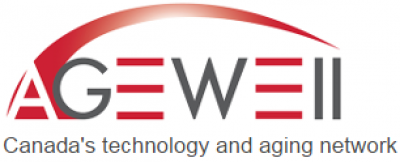- Use of GuardIO, a Health Canada-licensed mobile application, and machine learning to describe mobility patterns of persons living with dementia
- Managing risks of going missing among persons living with dementia by building capacities of search and rescue personnel, first responders and communities
If you wish to obtain further information about these studies, please contact us with specific requests and provide your contact information.
Use of GuardIO, a Health Canada-licensed mobile application, and machine learning to describe mobility patterns of persons living with dementia
Funders: AGE-WELL & Canadian Frailty Network; J.W. Graham Trust


Co-principal investigators: Lili Liu (University of Waterloo) and Antonio Miguel-Cruz (Universities of Alberta and Waterloo)
Partners: WeTraq, CareLective, Alzheimer Society of Ontario, Alzheimer Society of Alberta and Northwest Territories, Kateri Memorial Hospital Centre
The goal of this project is to examine the acceptance and usability of GuardIO - Family Care, mobile application. It supports persons with cognitive impairment and their care partners to develop risk mitigation strategies through understanding the patterns of their mobility by leveraging a cloud-based platform licensed by Health Canada. This enables the care partners to receive care and support. This Health Canada licensed app is developed by WeTraq and available on app stores and SunLife Lumino Health marketplace. It combines GPS and WiFi to provide real-time location monitoring and safety alerts. It does not require an additional device other than one’s personal smartphone. We will use machine learning driven analytics to describe mobility patterns of participants with dementia and without dementia (care partners). This information can be used to identify changes in mobility to inform decisions about personalized care and support services. Increasing prevalence of dementia in Canada calls for strategies like GuardIO to address risks of going lost and going missing, while supporting the health and wellbeing of persons aging in place.
Managing risks of going missing among persons living with dementia by building capacities of search and rescue personnel, first responders, and communities
Study website: Managing risks of disappearance in persons living with dementia
Funder: Public Saftey Canada

Principal investigator: Lili Liu (University of Waterloo)
Co-investigator: Antonio Miguel Cruz (University of Waterloo)
Partners: SAR-1, Alzheimer Society of Ontario, Alzheimer Society Southwest Partners, Dementia Network Calgary, Alzheimer Society of Saskatchewan, carya, Alzheimer Society of British Columbia, Dementia Advocacy Canada, interRAI, British Columbia Search and Rescue Association, BC Silver Alert, MedicAlert Foundation Canada
Public Safety Canada awarded a three-year grant to Dr. Lili Liu, Professor and Dean of the Faculty of Health at the University of Waterloo and Dr. Antonio Miguel Cruz, Adjunct Assistant Professor at the University of Waterloo.
The Search and Rescue New Initiatives Fund (SAR NIF) provided $2,147,140 CAD over three years (April 2021 to March 2024) for this proposal that builds capacities, partnerships and coordination of search and rescue personnel, first responders, and communities to manage risks of going missing among persons living with dementia.
Partners included first responders (e.g., police, search and rescue, paramedic, and fire departments), Alzheimer Societies and other organizations that support persons living with dementia and care partners, advocacy groups, and policy makers in seven provinces. Key partners also included two Indigenous communities in Quebec and Manitoba.
Our project at the University of Waterloo focused on managing the risk of going missing among persons living with dementia by building capacities of search and rescue personnel, first responders, and communities. It included four initiatives:
- Developing dementia-friendly resources for first responders;
- Creating a prevention and safety-focused digital toolkit for persons living with dementia and care partners;
- Establishing a best practice guide for conducting "Return discussions" with persons living with dementia and their circles of support;
- Analyzing data in police, search and rescue, Medic Alert Foundation Canada, and interRAI dataset to under missing persons incidents and lost person behaviour specific to persons living with dementia in Canada.
For more information and resources developed in this project, please visit our Managing risks of disappearance in persons living with dementia website.